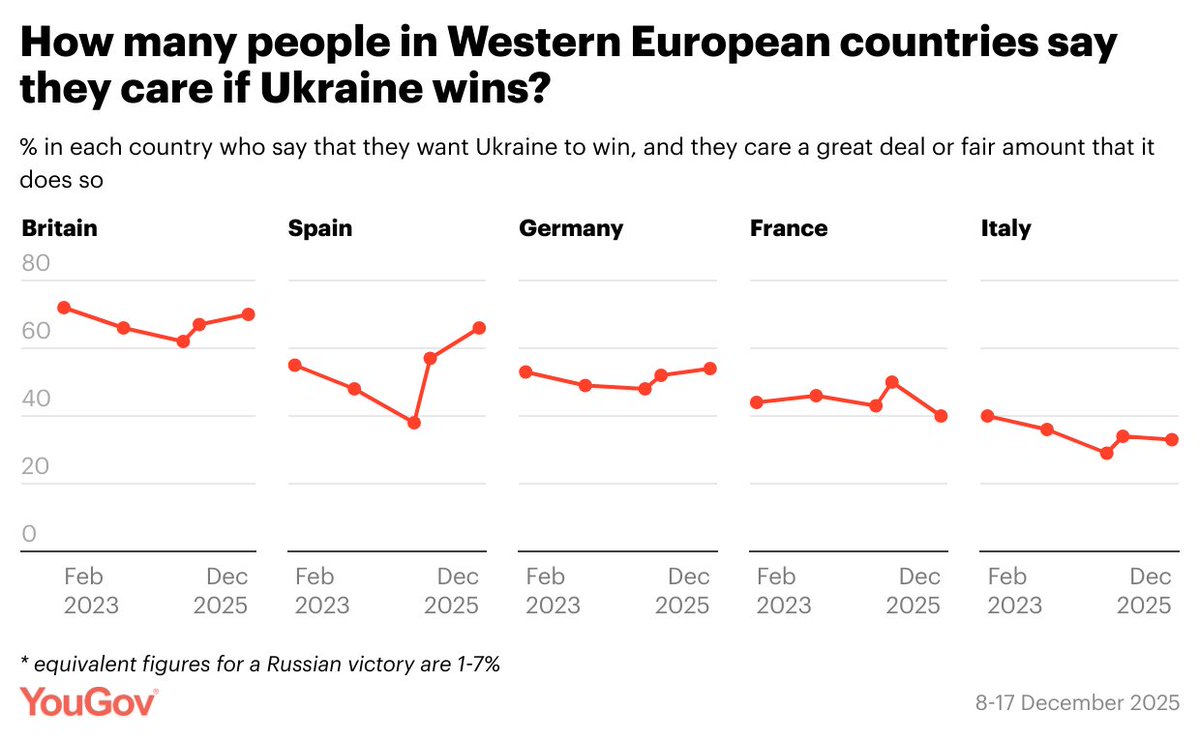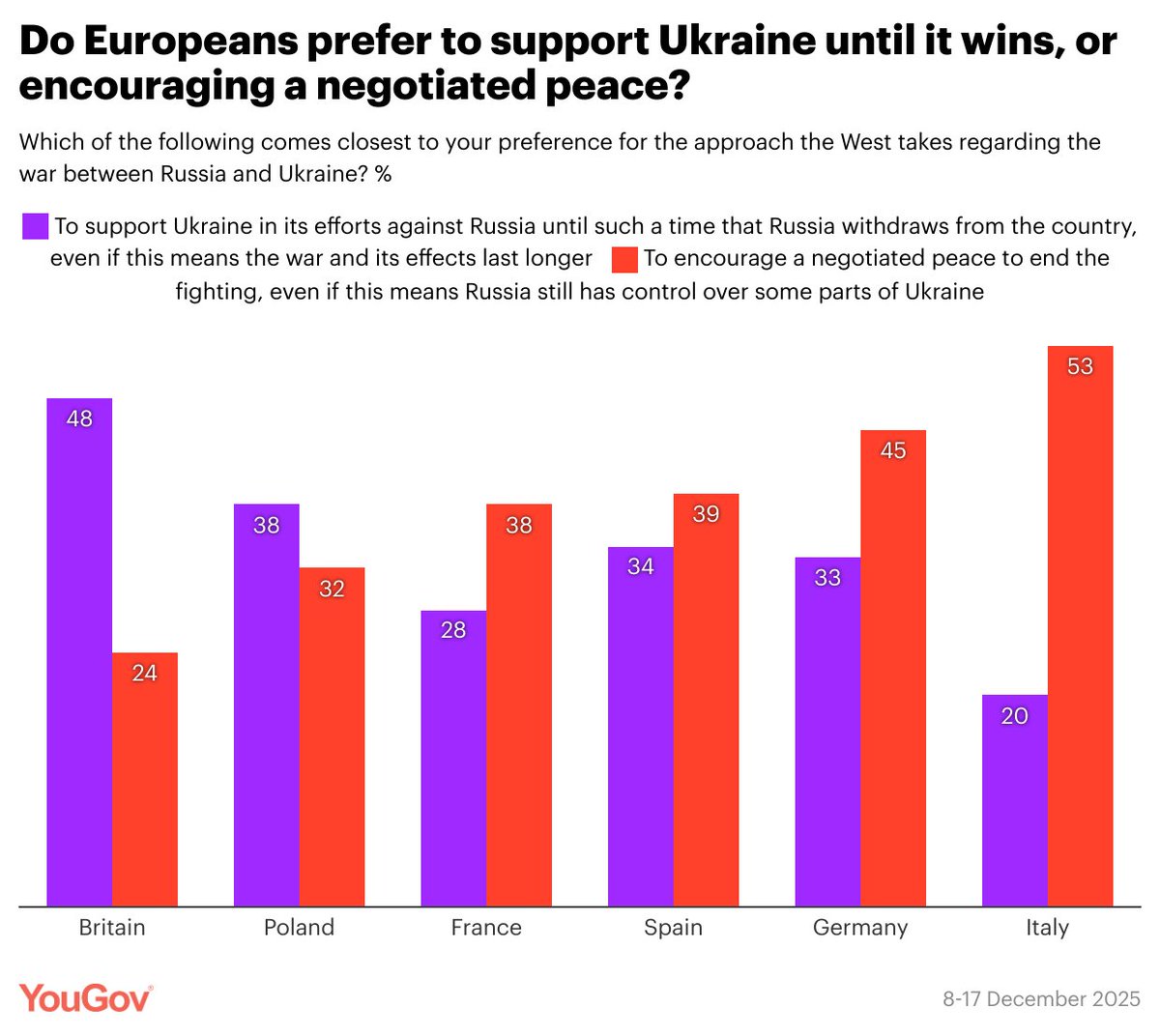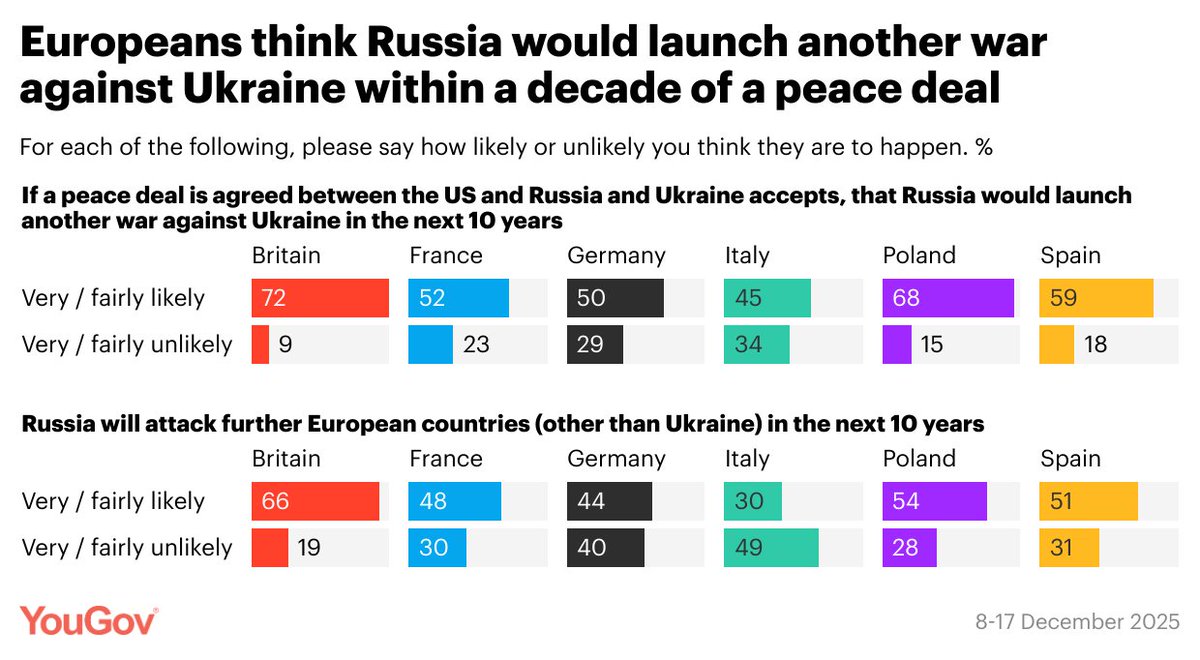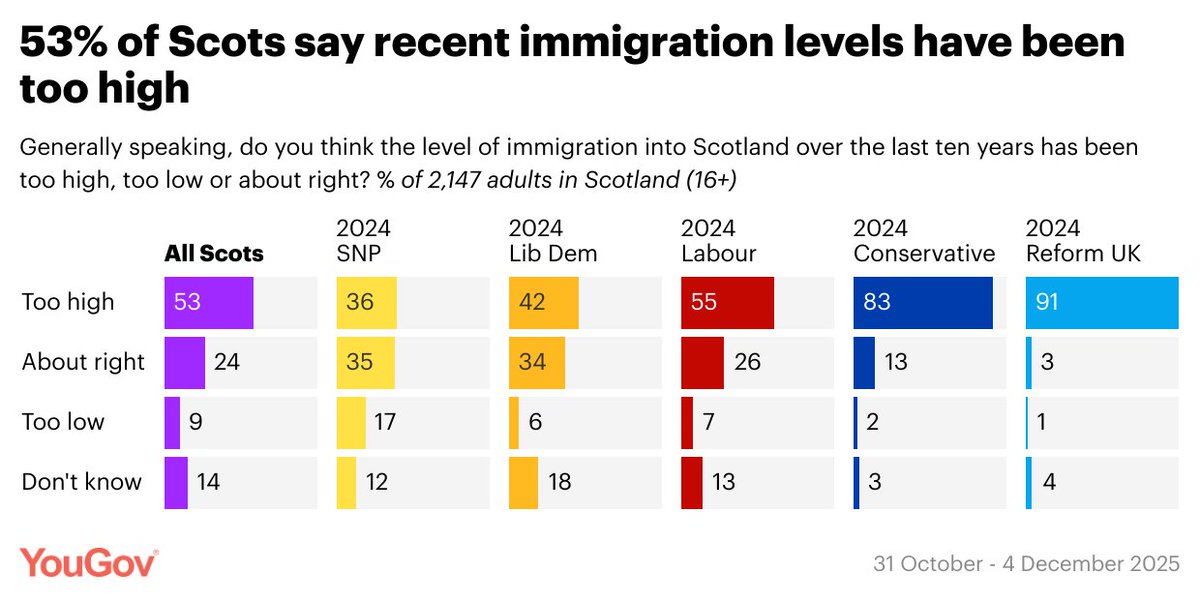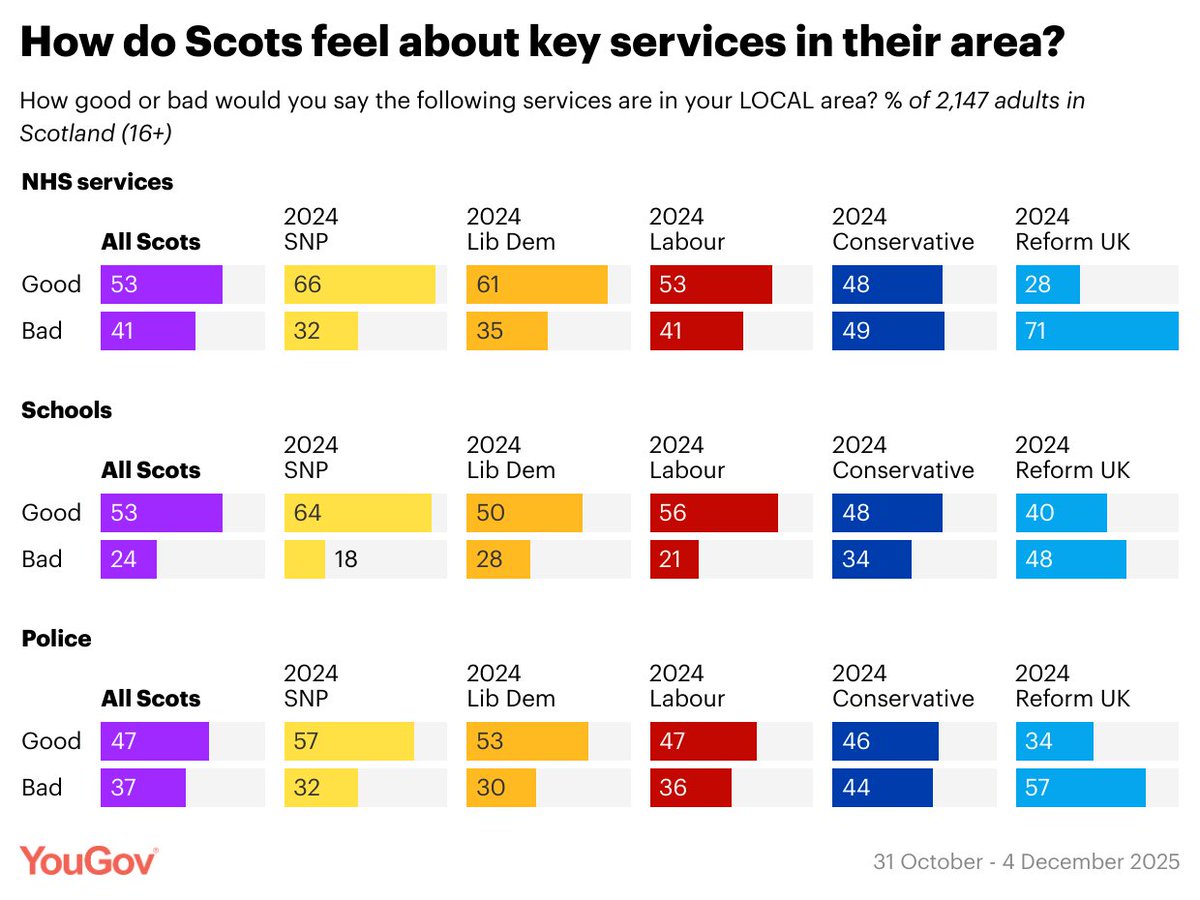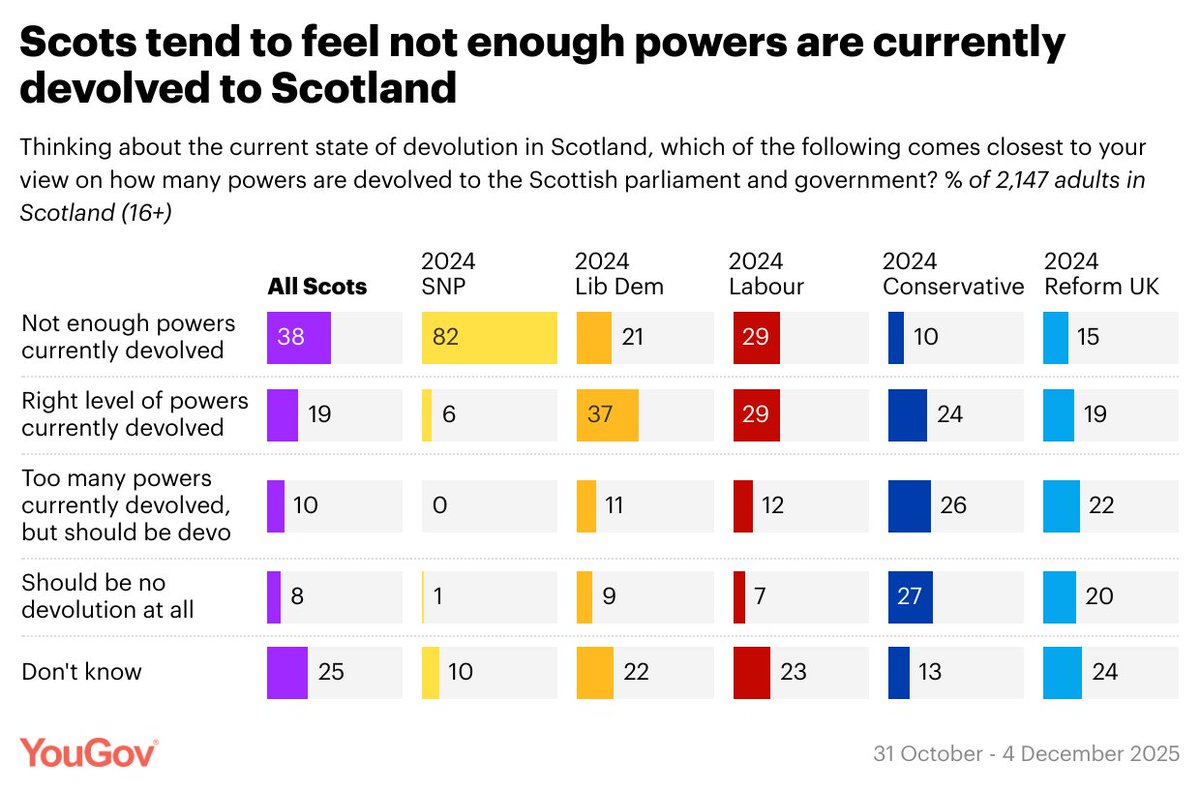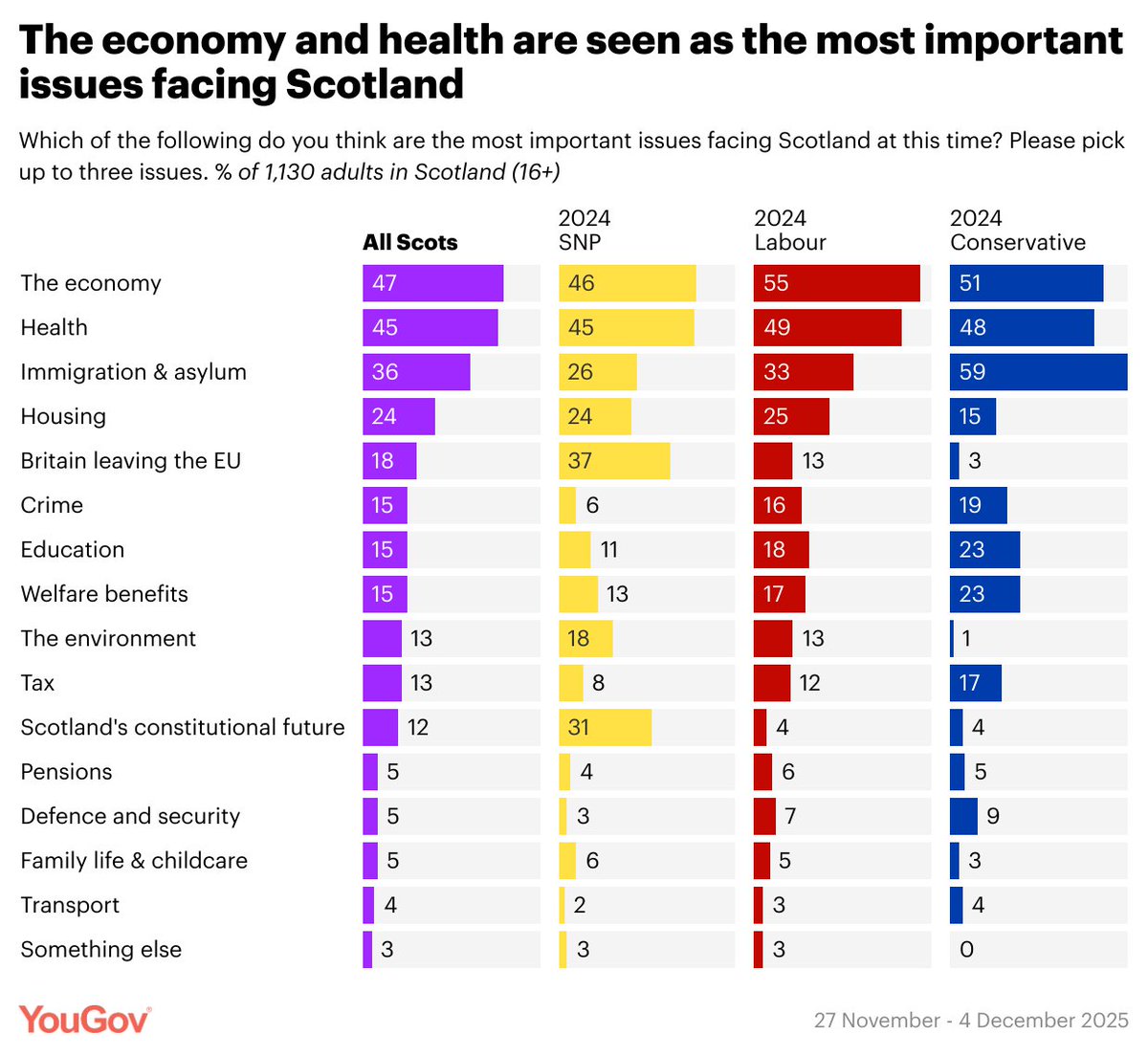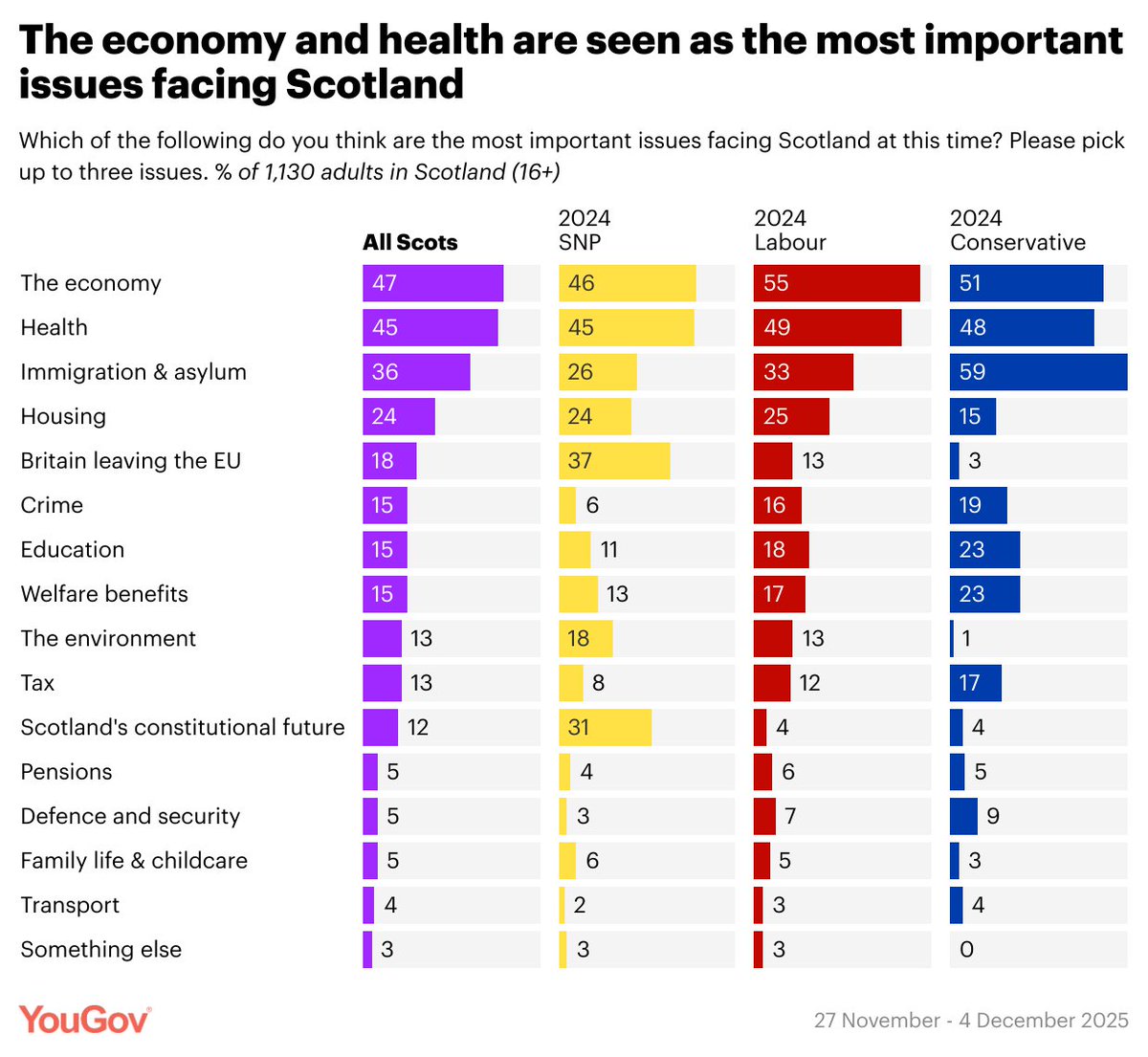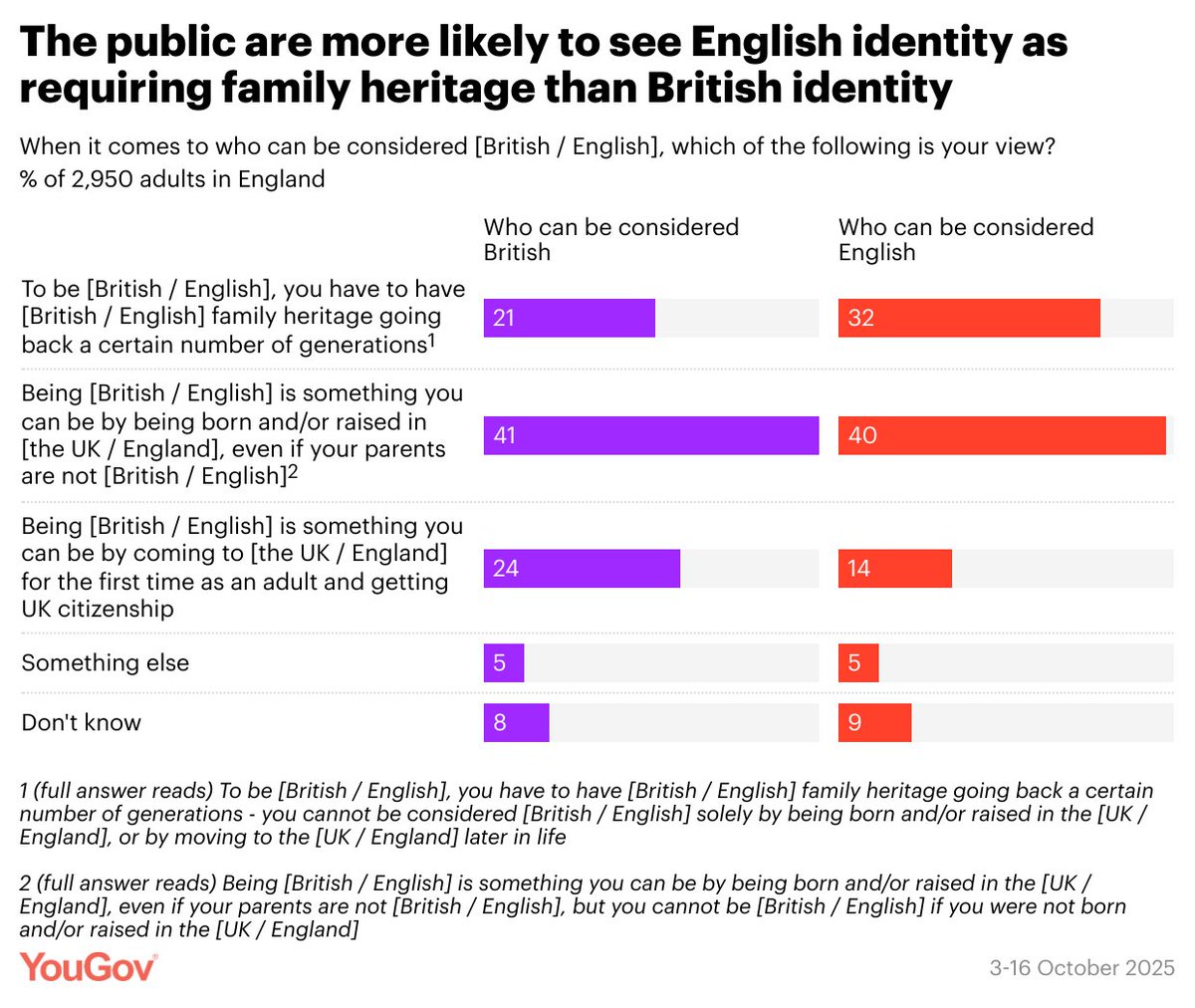Half of patient-facing NHS staff say they're not adequately trained to spot a victim of domestic abuse, our new Healthcare Professionals survey shows. This goes for 52% of hospital staff and 48% of GPs yougov.co.uk/topics/health/… 

26% of patient-facing NHS staff say they've not received training to identify a victim of domestic abuse, and do not see it as their role to do so. This is the opinion among 30% of hospital staff and 25% of staff in GP surgeries yougov.co.uk/topics/health/… 

Only 36% of NHS staff in patient-facing roles have received what they see as adequate training for supporting victims of domestic abuse – almost two thirds less than the proportion who feel able to identify a victim yougov.co.uk/topics/health/… 
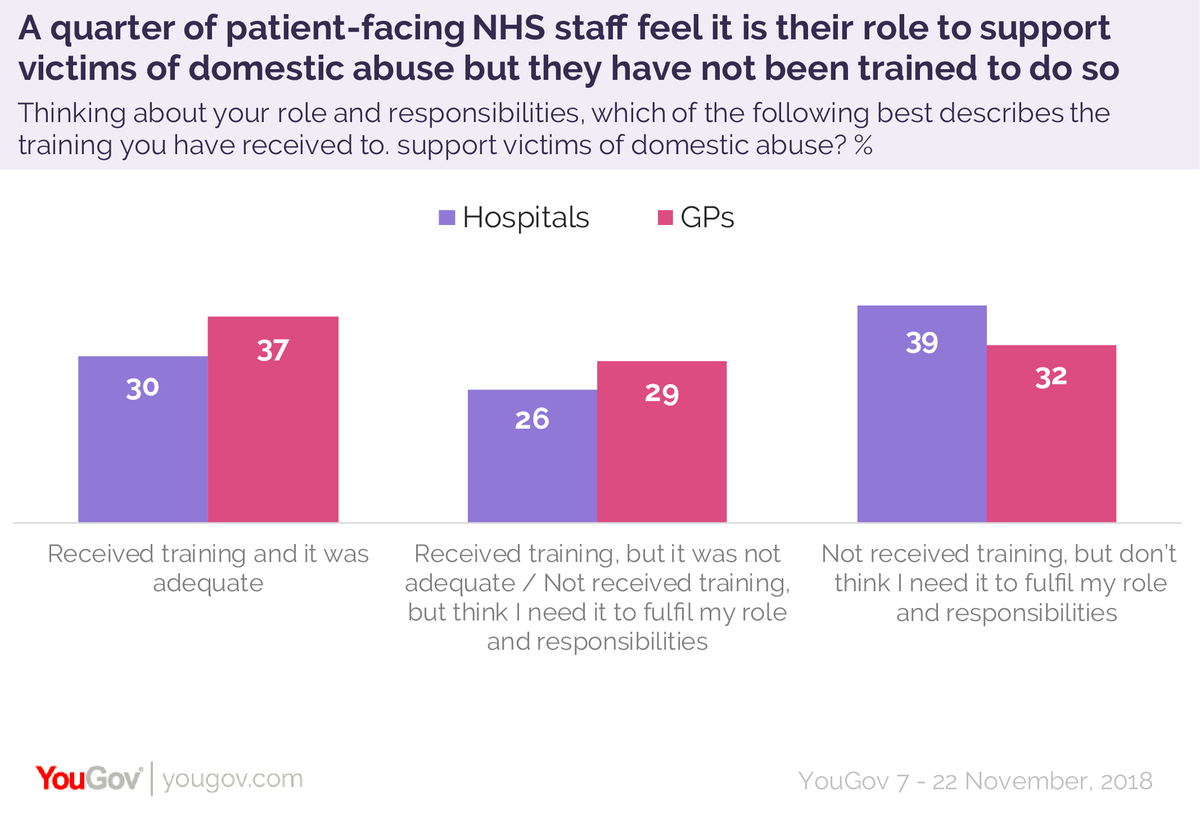
Just 31% of private sector professionals say they've received adequate training to identify victims of domestic abuse, compared to 50% of NHS professionals. Even fewer feel they are trained to then provide support (21% compared to 36% in the NHS) yougov.co.uk/topics/health/… 

• • •
Missing some Tweet in this thread? You can try to
force a refresh


